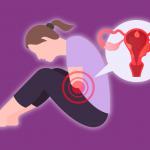
Vitamin D and Fibroids
Fibroids are a common health concern for women, affecting up to 80% of women by the age of 50. These non-cancerous growths in the uterus can cause symptoms like heavy periods, pelvic pain, and infertility. But what causes fibroids to grow? One emerging factor is Vitamin D deficiency.
Recent studies suggest that low Vitamin D levels may be linked to an increased risk of developing fibroids. But does Vitamin D deficiency actually cause fibroids, or is it just one piece of the puzzle? Every woman’s body is different, and it’s important to understand that vitamin D deficiency is only one of a range of risk factors for developing fibroids. Other potential influences include age, genetics, and lifestyle.
Below, we provide information about vitamin D and uterine fibroids. If you have additional questions, we recommend consulting a fibroid specialist.
The Connection Between Vitamin D and Fibroids
Vitamin D is often called the “sunshine vitamin” because our bodies produce it when exposed to sunlight. It plays a crucial role in bone health, immune function, and hormone regulation. But in recent years, scientists have discovered that Vitamin D also helps regulate cell growth, including the growth of fibroid cells.
What Research Says
Several studies suggest that Vitamin D deficiency is a significant risk factor for fibroids:
- A 2013 study published in Fertility and Sterility found that women with sufficient Vitamin D levels had a 32% lower risk of developing fibroids compared to those with a deficiency.
- Another study from the National Institutes of Health (NIH) revealed that Vitamin D inhibited fibroid cell growth in lab settings.
- A 2021 review in Reproductive Sciences confirmed that Vitamin D helps control fibroid size by reducing inflammation and slowing abnormal cell growth.
These findings suggest that Vitamin D deficiency does not directly cause fibroids, but it significantly contributes to their development and growth.
How Vitamin D Affects Fibroid Growth
Vitamin D interacts with fibroids in several ways:
1. Reducing Estrogen and Progesterone Sensitivity
Fibroids grow in response to high estrogen and progesterone levels. Vitamin D helps regulate hormone levels, making the uterus less sensitive to these hormones and slowing fibroid growth.
2. Inhibiting Fibroid Cell Growth
Vitamin D has been shown to suppress the growth of fibroid cells by triggering apoptosis (cell death) in abnormal cells. This prevents fibroids from growing uncontrollably.
3. Lowering Inflammation
Chronic inflammation is linked to fibroid growth. Vitamin D has anti-inflammatory properties that help reduce uterine inflammation, potentially slowing fibroid development.
4. Strengthening Immune Function
A strong immune system helps prevent abnormal cell growth. Vitamin D supports immune health, which may help the body naturally control fibroid formation.
Is Vitamin D Good for Fibroids?
Vitamin D is a group of fat-soluble nutrients that allow our intestines to absorb and metabolize calcium and phosphate. Our bodies convert cholesterol into vitamin D naturally under sun exposure. Many people refer to it as “The Sunshine Vitamin.”
The amount of vitamin D you can produce from sun exposure is greatly dependent on geographical factors. These factors are proximity to the equator, the time of year and time of day, the amount of melanin present in your body, the amount of air pollution, and the application of sunscreen.
There are different types of vitamin D, however, only two types have uses in the human body:
- D2: Also known as ergocalciferol, vitamin D2 mainly comes from plant sources, such as mushrooms, and foods fortified with essential nutrients.
- D3: Also known as cholecalciferol, our bodies naturally produce vitamin D3, and it is also found in foods sourced from animals such as fish, meat, milk, eggs, honey, cheese, and yogurt.
So what’s the connection between vitamin D and Fibroids? Fibroids are a type of non-cancerous tumor that develops in the uterus or on the walls of the uterus. A vitamin D deficiency has been linked to the growth of fibroids. However, this condition is not life-threatening, but it can cause serious health complications if left untreated. Women with fibroids often experience painful symptoms that can cause them to frequently miss work or cancel plans.
If you experience vitamin D deficiency, you may be at increased risk for fibroid growth. To help avoid related issues, your doctor may recommend dietary changes, supplementation, and/or safe levels of sun exposure.
Medical professionals suggest different numbers when calculating if you are deficient or not, but you are typically considered deficient when you have a vitamin D level below 30ng/mL. The average vitamin D level of the women who had fibroids was 23.3ng/mL.
Based on this, 85% of women diagnosed with fibroids had measurable vitamin D deficiency compared to women who have not been diagnosed with fibroids (general population).
Researchers estimate that exposing 10% of uncovered skin to sunlight for 10 to 15 minutes would result in about 1,000 IU of vitamin D being made in the skin. This amount would satisfy the body’s daily requirement for vitamin D. If you are concerned that you have a vitamin D deficiency, talk to your doctor about adding a vitamin supplement to your diet. If vitamin D deficiency or other factors lead to fibroid growth, we want to assure you that you have options. There is a range of uterine fibroid treatments available, some of which do not require removal of the fibroids or the uterus.
At USA Fibroid Centers, we perform a minimally invasive, outpatient procedure called Uterine Fibroid Embolization (UFE). UFE can shrink your fibroids, alleviate painful symptoms, and improve your quality of life.
Can Vitamin D Shrink Fibroids?
There is some evidence to suggest that vitamin D shrinks uterine fibroids; however, additional study is needed to fully understand the connection.
We suggest talking to your fibroid specialist to determine the best course of treatment for your individual situation. For instance, taking vitamin D to shrink fibroids, alongside minimally invasive UFE treatment, may be recommended.
As mentioned previously, vitamin D deficiency is just one of many risk factors for uterine fibroids. Along with getting enough of this important nutrient, preventative measures include maintaining a healthy Body Mass Index (BMI), eating a well-rounded diet, and exercising regularly.
Conclusion
So, does Vitamin D deficiency cause fibroids? While it may not be the sole cause, research strongly suggests that low Vitamin D levels contribute to fibroid growth. By maintaining optimal Vitamin D levels through sun exposure, diet, and supplements, you may reduce your risk and improve your fibroid symptoms.
If you’re dealing with fibroids, consider checking your Vitamin D levels and discussing supplementation with your doctor. Taking proactive steps toward better nutrition and hormone balance can make a real difference in your reproductive health.
Request a Consultation at USA Fibroid Centers
If you are concerned about vitamin D and fibroid tumors, we suggest consulting one of our leading fibroid specialists. Vitamin D deficiency is usually a preventable risk factor.
At USA Fibroid Centers, our experienced doctors can help identify underlying risk factors, provide personalized treatment, and alleviate your symptoms. We offer dozens of locations nationwide, as well as convenient telemedicine options.
No matter where you decide to visit us, we look forward to meeting you.



